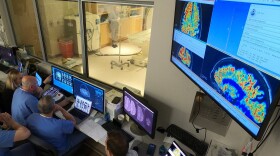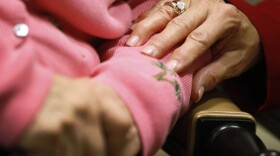-
Key Chorale singers perform with the Sarasota Orchestra, Sarasota Ballet and even the circus. But they say some of their most meaningful work comes at practices singing with the Where Are My Keys choir.
-
A new generation of blood tests can help doctors diagnose Alzheimer's without a brain scan or spinal tap. But only a few perform as well as traditional tests.
-
Students and faculty from multiple university departments collaborated on a unique device the delivers a repeated presentation of a strobe flash to see how the brain handles that information.
-
Miami-Dade has the nation's highest prevalence of Alzheimer's. But with monthly memory care costs in Florida averaging at more than $8,000 per month, one family talks about the difficult choices to come.
-
Researchers used sound waves to jiggle a temporary opening in the brain's protective shield for three patients over six months. In spots where that shield was opened, more plaque was cleared.
-
Amy Schenk, who works for the Neuropsychiatric Research Center of Southwest Florida in Fort Myers, said that as people get older a lot of things change.
-
Joyce Nunn shares her story of family members' interactions with her husband as he struggled with Alzheimer's. It's a circumstance helpline specialists are familiar with.
-
Roughly 8 million people 65 and older have dementia or need help with two or more activities of basic daily life, like getting out of bed. Facing a severe shortage of aides and high costs, caregivers often cobble together a patchwork of relatives and friends to help.
-
What's the right amount to deter Alzheimer's disease? And why do some older adults stay the course and others don't? An Orlando researcher researcher is coordinating a major study to answer these questions.
-
Primary caregivers can learn skills to care for people with dementia through a new six-week online certificate program.
Play Live Radio
Next Up:
0:00
0:00
Available On Air Stations










